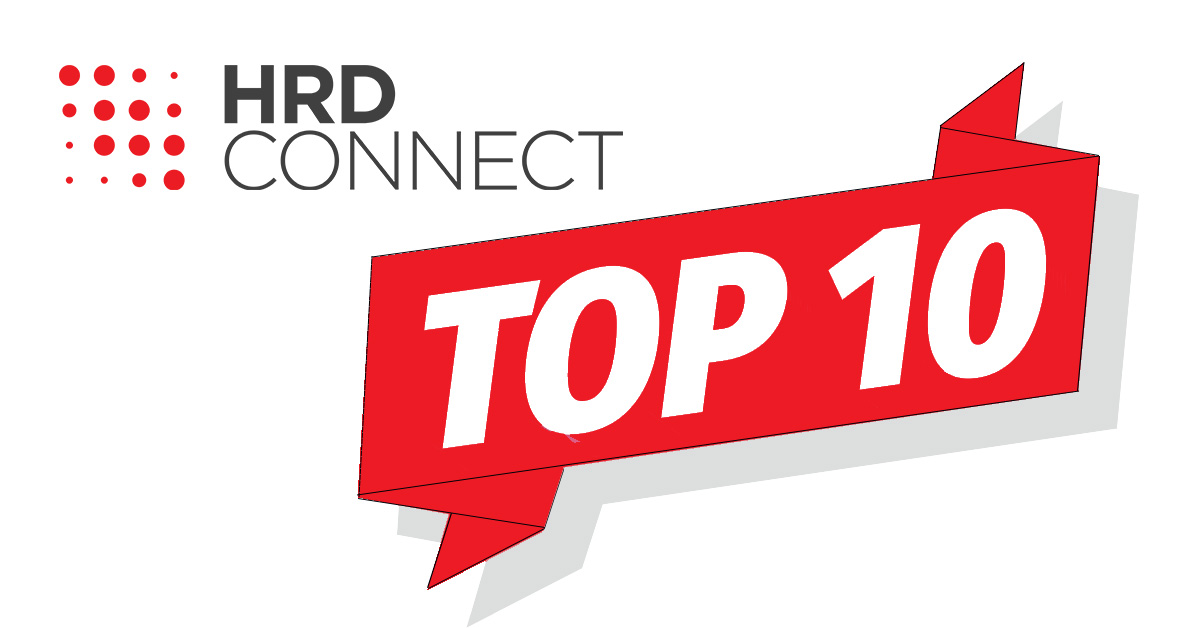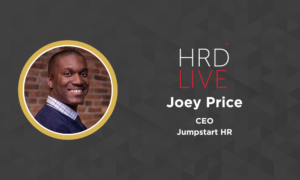HRD Best of 2019: Strategy and Leadership
- 8 Min Read
As 2019 comes to a close, we look back at the top 10 HR strategy and leadership articles, podcasts and interviews of the year.
- Author: Michael Hocking
- Date published: Dec 17, 2019
- Categories

What a year it’s been for People Leaders across the globe. Businesses have become more aware of HR’s strategic value in business, effective corporate social responsibility and purpose have become key to talent attraction, employee engagement and corporate culture, and inclusion has gone beyond quotas and keynote sessions, to discussions around whether unconscious bias is a ‘get-out-of-jail-free card’ and stronger initiatives supporting the business value of a more diverse workforce.
With 2019 winding down to a close, we’ve taken a look back over the months to cherry pick the most inspiring articles, interviews and podcasts, featuring our incredible roster of thought leaders and contributors, about HR strategy and leadership. Enjoy!
Dave Ulrich’s Leadership Code 2.0
“Strategists answer the question, “Where are we going?” and make sure that those around them understand the direction as well. They not only envision a future but also create it. Moving forward, the future of work requires Strategists to think outside-in, where internal organization actions should create value for external organization stakeholders.”
One of the most prominent and respected voices in HR, leadership and people management, Professor Dave Ulrich revised the Leadership Code this year, with his Leadership Code 2.0.
Penny De Vaulk on why a paradox mindset is an ‘accelerant’ for women leaders
“Knowledge is power. When we know why and how we need to navigate, we move from a dilemma mindset to a paradox mindset. When women in leadership positions shift from a dilemma mindset (“look what’s facing me, it’s either/or, I can’t figure this out”) to a paradox mindset (“there’s a problem here, I’ll refuse a trade-off, I know how to do both/and”), the entire world opens up. And it can be learned.”
Penny de Valk, executive leadership coach and mentor, makes the case for a ‘paradox mindset’ as an essential quality for women leaders who want to progress within their organisations, and beyond.
Charles Bendotti on HR’s role in Philip Morris International’s total transformation
“The beginning of any transformation is like a change curve with negativity in the pre-phase as the organization faces a “reset.” People are often worried during this first phase, morale can be low and stress levels can increase due to the pressure and ambiguity that often accompanies major changes. While it’s important to help employees navigate these changes, it’s really important to reach a stage where you can “push the button” and the organization is ready to bounce back and move with you in the direction of the new business goals. And that’s when you see if you have a strong organization or not.”
As the world changes, so must businesses – but Philip Morris International has seen more change than most. With the transition from tobacco to electronic products changing the way PMI operates in nearly every aspect, a major organisational transformation needed to take place. Charles Bendotti, Senior Vice President, People & Culture at Philip Morris International, discussed the transformation process with HRD Connect – what’s changed so far and what’s next on the list for their organisation.
S&P Global’s Dimitra Manis on understanding the needs of your employees
“We need to be technologists. We need to be thinking and leading like technologists every step of the way.”
Dimitra Manis, Chief People Officer, S&P Global, sat down with HRD Connect to discuss emerging technologies, HR’s role in building agile global teams, and to what extent organisations can truly they understand the needs of their employees.
HRD People Leaders’ Report 2019 with Columbia Business School
How are new challenges impacting business leaders? Is the traditional role of the leader dead, or has it simply changed? What characteristics must the leaders of tomorrow possess if they’re to thrive? How can we develop these leaders, and whose responsibility is it?
This year’s People Leaders’ survey set out to answer the questions by taking the pulse of the global HR community. The resulting report sheds light on a number of illuminating findings: the need for leaders to be comfortable with rapid change, the work still to be done on successfully addressing digital transformation challenges, the overwhelming benefits of diversity and inclusion, and the fact that tomorrow’s leaders should prioritize clear communication over charisma.
Read the HRD People Leaders’ Report 2019 with Columbia Business School here.
Professor Megan Reitz on the five keys to speaking up effectively
“Our decisions to speak up – or stay silent – are phenomenally important. They affect our own success at work, our colleagues’ and, in many cases, have far wider ramifications.”
HR Leaders hold more sway in the future of a business than ever before, which means its never been more crucial that their voice is heard. Professor Megan Reitz, Hult International Business School, gave our audience of HR professionals five key tools for making their voice heard in business.
Jon Ingham, Cath Bailey and Mark Bouch on the HRD Live Podcast – Strategic HR Special
There are a multitude of questions facing People Leaders who strive to create strategic vision in their business. Where do we need to focus most when it comes to strategic execution? Do we have the right roles, people and mindset? Do we expect the need to involve employees in strategy and strategic execution to change too? How do we empower them to do so?
To answer these questions and more, Jon Ingham, strategic consultant and author of The Social Organization, Cath Bailey, VP HR, Global Commercial Business, Avon, and Mark Bouch, Managing Director, Leading Change, sat down for this special HRD Summit UK edition of the HRD Live Podcast.
Dave Ulrich on helping employees to be comfortable with ambiguity and uncertainty
“As one navigates the paradoxes, the ambiguity does not always go away, but rather than be stifled by seeking clarity; move forward by navigating paradoxes, learning at each step what works and what does not.”
How can leaders aid their workforces during times of great upheaval? Michael Hocking, Deputy Editor, HRD Connect, and Dave Ulrich, best-selling author, professor and leadership expert, take on the challenges of engagement during times of uncertainty.
Gordon Tredgold on the 12 things teams hate about leaders (but would never say to their faces)
“We all like to think that we are a great boss and that our teams love to work with us. We might even point to the fact that our teams never complain as proof positive about the quality of our great leadership.
However, a quick study of the facts will show you that, on average, 50% of people who quit their jobs do so because of their direct boss. That means, if anyone left your team in the past year, then there is a 50/50 chance it was because of you!”
Gordon Tredgold, Global Gurus Top 30 Leadership Expert, Speaker, and Business Consultant, tells People Leaders the real reasons their teams leave them behind.
Janine Truitt on the three ways you can socialize change for success
For many decades now, we have perpetuated the “suck it up” “you are lucky you have a job” delivery and mentality. I’m not so sure this is the right attitude. Conversely, it isn’t reasonable to expect to have complete concurrence for every decision you make as a leader. Sometimes you just have to make a decision and pick up the pieces after.
However, what if we owe our employees something more during the change management process? Perhaps, they feel ostracized or distant from the process. As leaders, isn’t it our job to not only manage the change, but to properly socialize it?
What if our understanding of how we bring employees through change was fundamentally flawed? Janine Truitt, Chief Innovations Officer, Talent Think Innovations delves into how People Leaders can socialize change for their employees, for a more successful transformation.
Gary Cookson on HR’s role in promoting ethical practice in organizations
“Ethically, there’s no easy way to define what one workplace finds acceptable without having open and transparent conversations about what I’ll call “borderline” unethical behaviour. What are the types of situations that your staff, and in particular your leaders, encounter where they could make the “wrong” kind of decision – one that’s borderline unethical?”
Gary Cookson examines how HR plays a pivotal role in promoting ethical practice within organizations, and how this delicate balancing act might be performed by People Leaders striving to create meaningful change in the cultural behaviour of their businesses.









